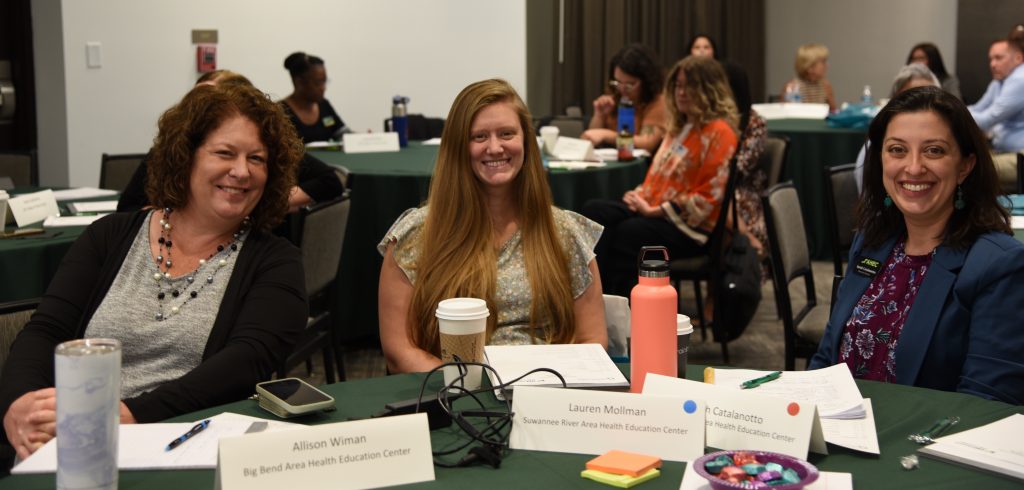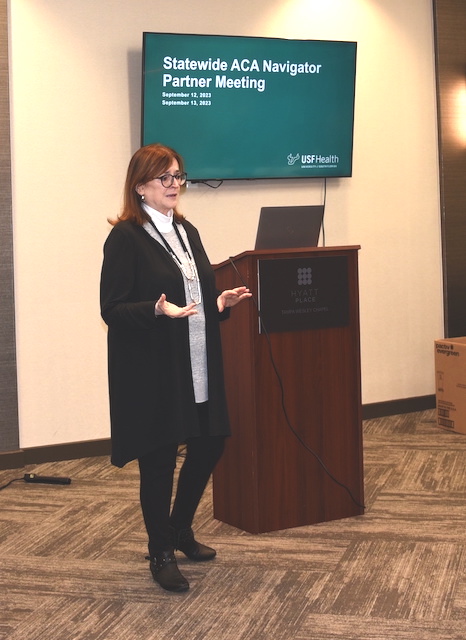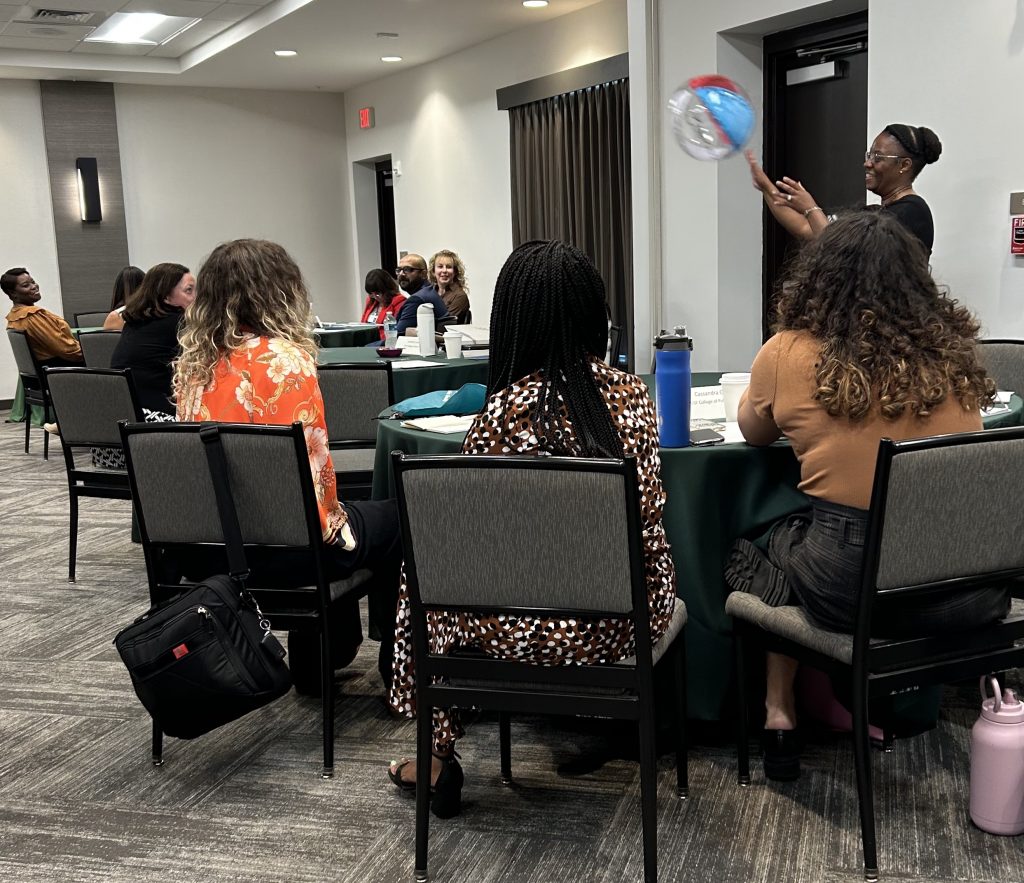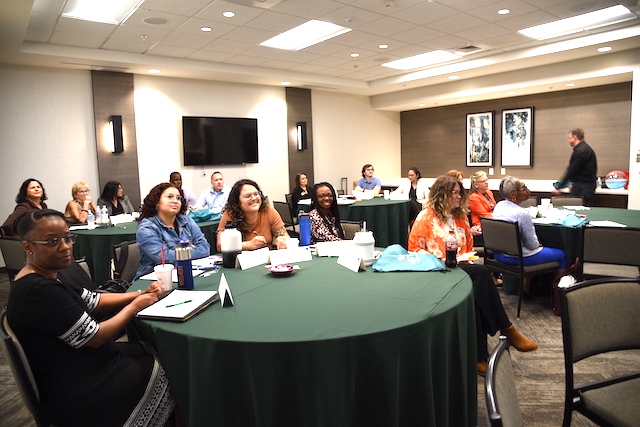COPH hosts networking meeting of Navigators, state partners
The USF College of Public Health (COPH) recently brought together roughly 40 health care marketplace Navigators—specially trained people who help those searching for health insurance “navigate” the enrollment process—and representatives of health education partners from around the state to meet, network and, most importantly, collaborate.
The meeting took place in Lutz, Fla., on Sept. 12-13.

A meeting of the minds
Dr. Ellen Daley, a COPH professor and principal investigator of the Florida Covering Kids & Families (FL-CKF) grant, which works extensively with Navigators around the state, said bringing together Navigators and partners at this point, when FL-CKF leadership has recently changed, was crucial.
Florida Covering Kids & Families works collaboratively with Florida agencies and stakeholders to advocate and conduct outreach to ensure all Floridians have access to affordable health care coverage.
“It was a good time to get together with partners and see what was working and what wasn’t, what needed addressing, what needed revising,” Daley said in her opening remarks to the group.

Daley then gave the group an overview of some recent FL-CKF highlights, noting that over the last 10 years, some 19,000 consumers have been helped, per year, with insurance enrollment and that Florida, California and Texas have the highest rates of enrollment in the country.
After introductions and an ice-breaker toss-the-beach-ball exercise, state partners were invited to the podium to list their “Points of Pride.”

Outreach outlined
Many outlined how they provide outreach to the large and often diverse areas they serve, sparking ideas for other groups.
For example, Big Bend Area Health Education Center (AHEC), Inc., a nonprofit based in Tallahassee that aims to improve community health, focusing on underserved, rural and minority populations in its area, described how they talk to people about insurance while they are getting their blood sugar checked or blood pressure taken. They also place ads in grocery carts and on bus stops and leave information at nail salons and public libraries, which many people without a computer or WiFi will stop into to check the internet or email.

Other groups talked of how they reach clients by partnering with health care systems and local health departments, going to food banks, construction sites and homeless shelters, talking about insurance enrollment during tobacco cessation programs and utilizing texting programs.
They also hire Navigators from within the community, a move that often helps to mitigate cultural differences and language barriers.
“Insurance for free? Why is no one talking about this?!”
Time and time again, the Navigators shared stories of the impact health insurance had on their clients’ lives—including the elderly woman who had recently immigrated and didn’t have a social security card and wasn’t eligible for Medicare. Or the international student at Florida State who had no idea how health insurance in this country worked. “We helped him find a plan that was no cost to him,” said Allison Wiman, executive director of Big Bend AHEC. “The student said, ‘Insurance for free? Why is no one talking about this?!’”
A passion for what they do
A Navigator’s work can be complex and sometimes frustrating—but always rewarding, the meeting’s participants said.
“I absolutely love what I do,” said Rory Noonan, who works with FL-CKF’s USF Navigator team. “I actually got my own health insurance plan through the Navigator program when I was in graduate school and turned 26, and I can see directly how [our work] helps people. It feels good to tell people, ‘Congratulations, you now have health care.’”
“I remember many appointments in 2013 [when open enrollment in the health care marketplace began] when consumers would leave our offices walking much taller, as this was the first time they were able to obtain health coverage,” added Tammy Watson, military outreach coordinator with FL-CKF. “Being a small part of this is both humbling and rewarding.”
Health insurance open enrollment using the Health Insurance Marketplace begins Nov. 1 and closes Jan. 15. All Marketplace plans cover preventive health services as well as things such as prescription drugs and hospitalizations. They also provide coverage for pre-existing conditions.
Story by Donna Campisano, USF College of Public Health
